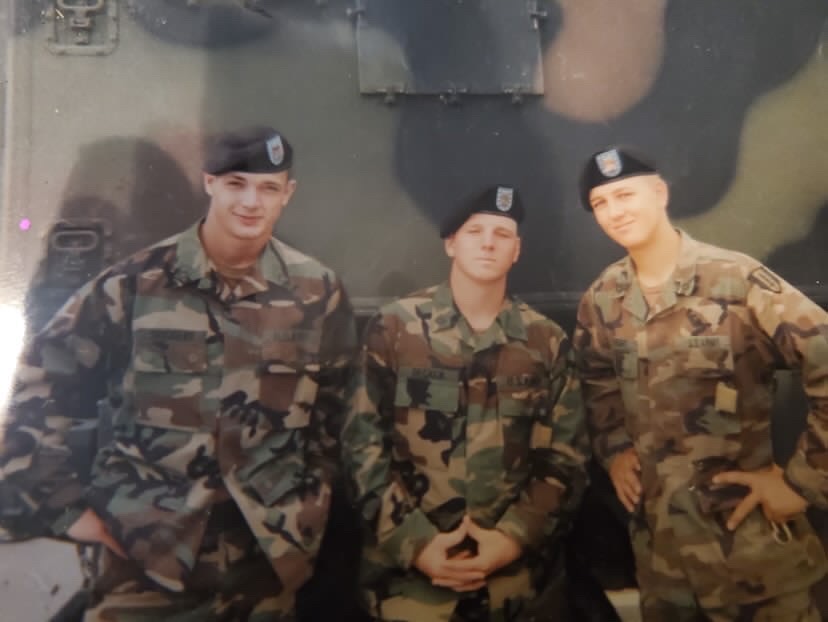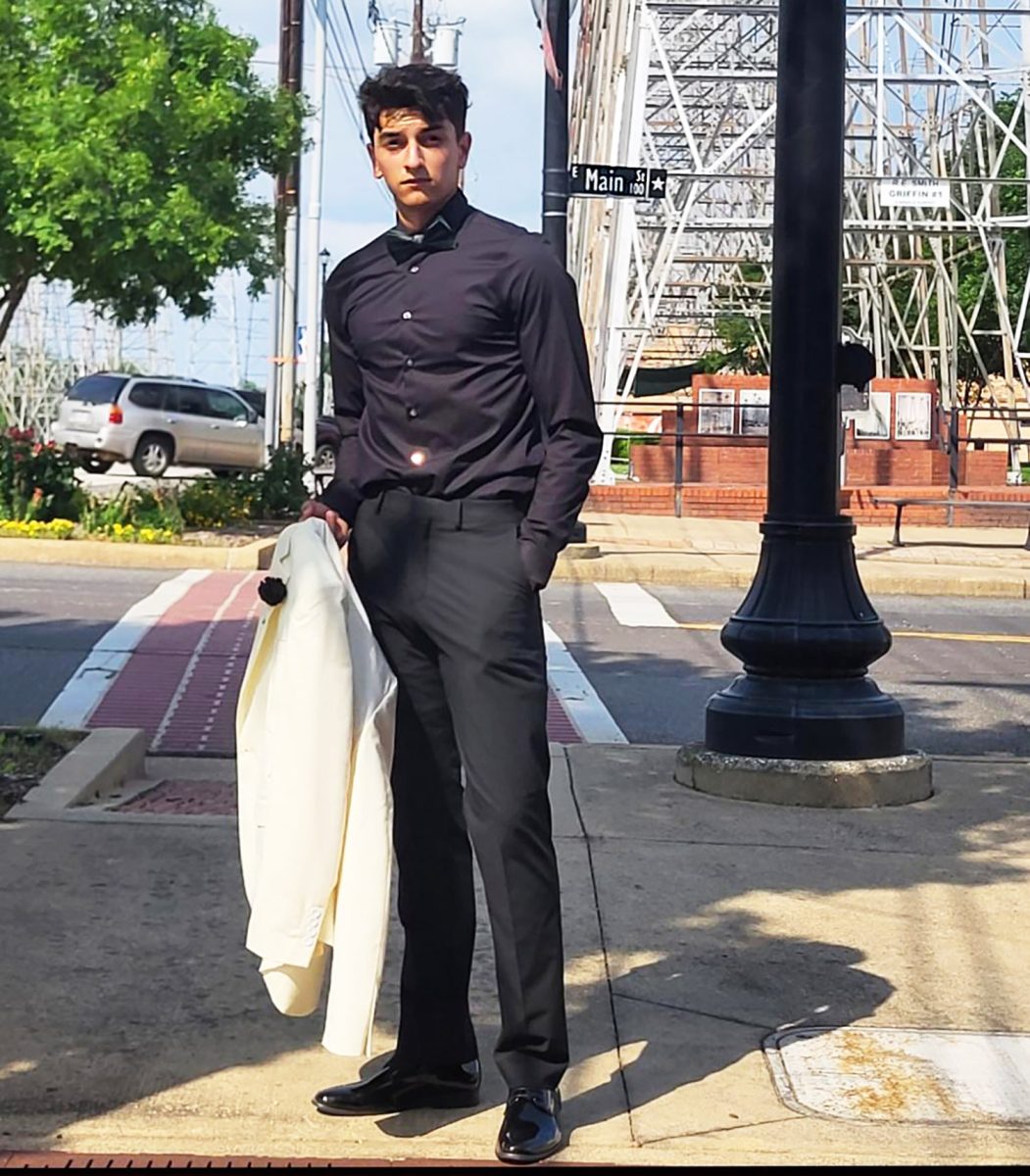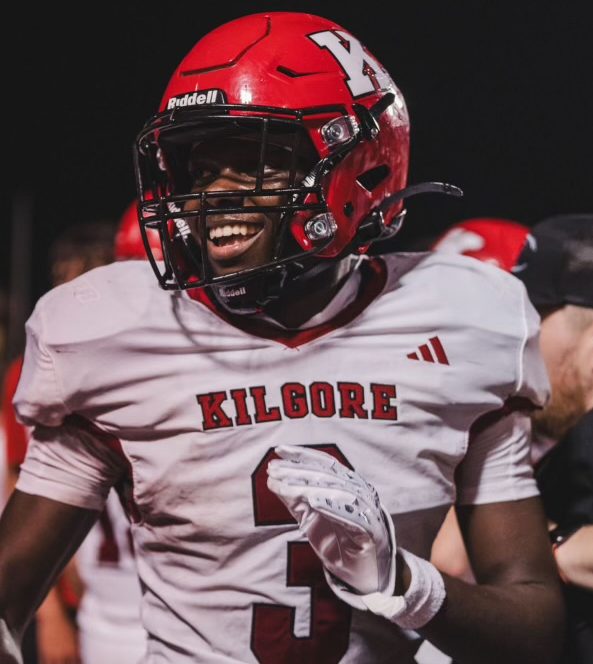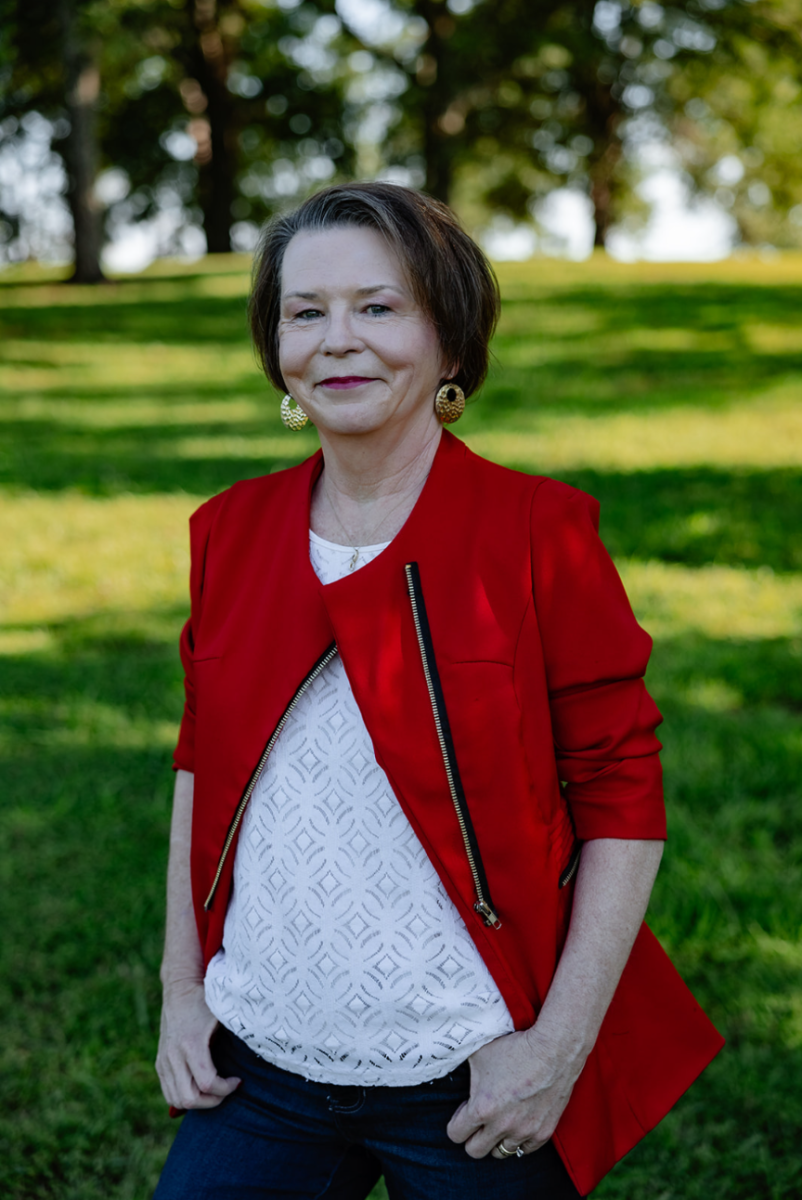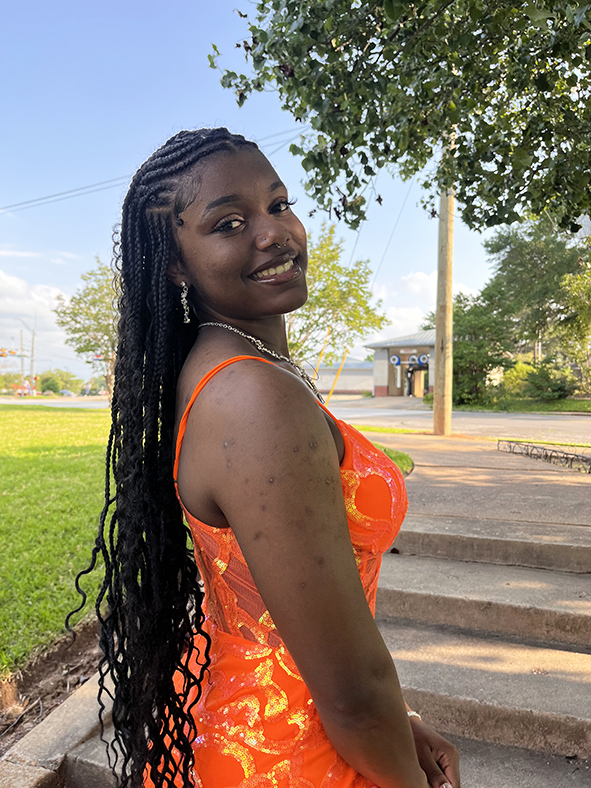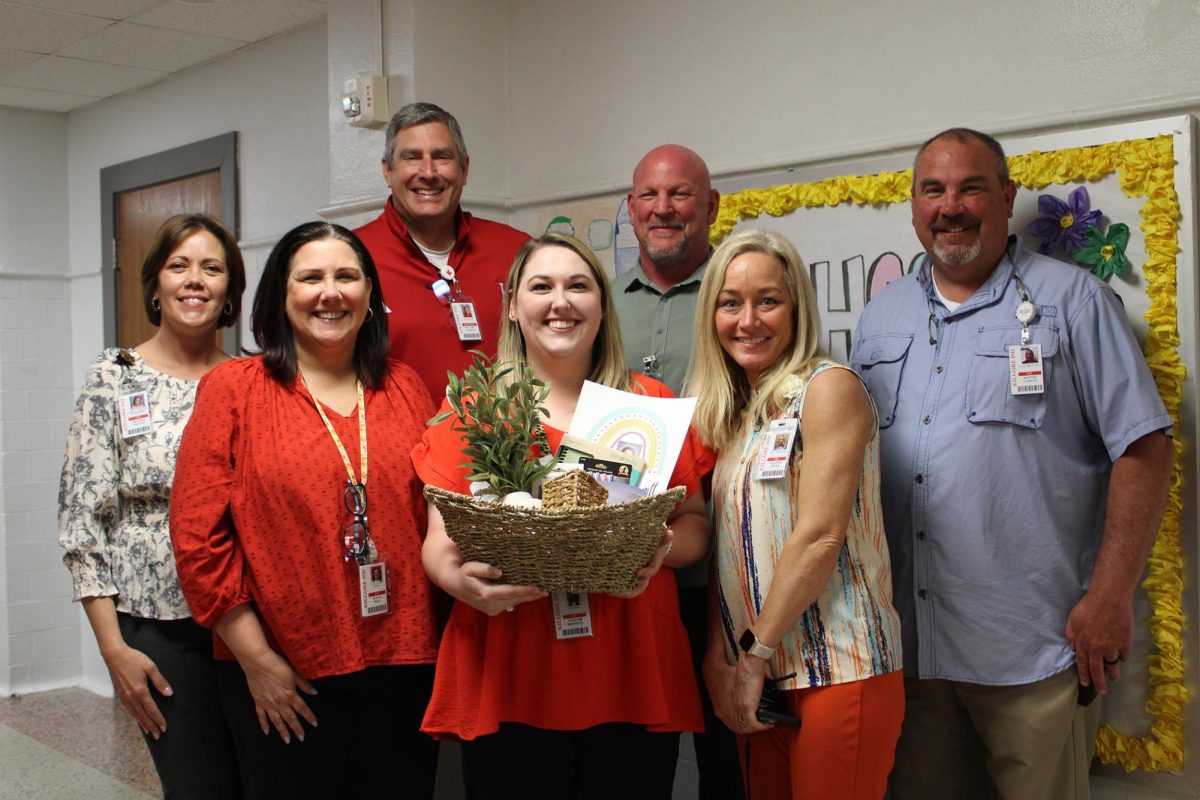We need heroes; we need somebody to look up to. We need soldiers. As the November fourteenth Veteran’s Day celebration gets closer, let’s take a moment to dive into the stories of our Veterans and active serving members.
“I wanted to get out of East Texas and travel the world,” former Staff Sergeant Daniel Decker said. “I wanted to see places I’ve never been, of course this was back before the war started. I would have joined even if we were at war; I just wanted to see the world and go to as many places as I could.”
Dreams will get us far in life. The willingness to make that dream come true, though, is what actually helps shape your path, and every path has a beginning.
“So I joined in April 2001 and went to basic at Fort Jackson, South Carolina. I really enjoyed basic training,” Decker said. “It was nine weeks of intense training but I was in pretty decent shape. The only downside were a lot of the other classes that you had to take and of course Drill Sergeants yelling at you and getting up super early in the morning. I graduated basic training in June of 2001 and went to Georgia to become a multi-channel transmission operator. I’d set up these antennas and stuff and I was learning how to do all that. We still had physical training super early in the morning and class all day, but we slowly were given more and more freedoms. Your first three weeks was phase one, the second three weeks was phase two, and last three weeks was phase three. In Advanced Individual Training, we also had three phases and they were red, white, and blue. As you progress from red to white to blue you got more and more freedom. You could go out on the weekends or go off base and stuff once you hit blue phase and white face.”
When a person makes the decision to join the United States military, they’re choosing to fight for their country when they get that call. The question is, though, when will they get that call?
“Everything was cruising along until the day of my last written exam. That was 9/11/2001. That was the day everything changed.” Decker said. “As a matter of fact, I saw the second plane hit the tower and there was a drill sergeant standing behind me and he said “gear up we’re going to war.” To be honest I’d never thought about war. I knew I was a soldier and that was a possibility, but I had never even thought that it would actually happen. That day completely changed everything.”
Post-9/11 America was noticeably different from the United States today. It was the first time since the Vietnam War that people were gearing up for war. And they were gearing up fast.
“After I graduated from AIT, I got stationed in Waegwan, Korea and spent November 2001 through November 2002 there. I actually loved it there. That’s where I discovered that I love learning about new cultures and their history. And of course there was a lot of history there. From there I went to Fort Riley Kansas. I got there in December 2002 and immediately started prepping to go to Iraq,” Decker said. “The whole month of January we were in Fort Irwin, California at the National training center or NTC preparing for our deployment. We got to Kuwait and spent two weeks there before we rolled up towards Baghdad. That year was one of the craziest years of my entire life. It’s the year I broke my back on a combat patrol, got in firefights, almost got blown up multiple times, and saw some really really horrible stuff. Crazy as it sounds though, it’s a year that I would completely repeat if it meant being with those same people I was with. There was a bond there that I can’t explain.”
No matter what environment we’re set in or whatever time frame we’re experiencing, we want a bond. Those bonds we form are what allows us to get through the hard times.
“There were five of us on our team. It was Sergeant Aaron Cavanaugh, John Patitucci, Jose Lopez, Jessica Bernhardson, and myself,” Decker said. “Before we got to roll out with the Mitt team though they pulled Bernie off of our team because we couldn’t have a female where we were going. I’ve never been as close to three other guys than I was then. I had never had brothers but those guys were my brothers.”
Those dire situations breed a deep connection. A union like that of blood. People grow closer together when they realize all that matters in the end is family.
“Cav and I were closer than brothers. He was an uncle to my kids, but he died in 2019 and it about killed me. I was not in a good place with my PTSD at the time and losing him hurt so bad,” Decker said. “Patitucci and I still talk though; we message each other nearly every day. That’s the one thing I’ll remember most about the military is the brothers and the sisters that I had that got me through everything. I spent a year with those crazy yahoos and in one of the most dangerous places in the world but being with them made it easier.”
War is never easy. In an active warzone, each place you travel to could and will be more dangerous than the last, but that doesn’t mean soldiers are constantly behind enemy lines. They get to come back to their homeland and find some time for training and a form of much needed relaxation.
“The rest of the Middle East was pretty much going to leave us to what we were going to do but then Abu Ghraib happened right near the end of the first appointment,” Decker said. “So the second deployment was nothing like the first appointment. If anything it was more dangerous. More insurgents, more bombs, more danger all around. I came back to Fort Riley for a few months before I headed out to Fort Gordon again for some more training for six months. I came back to Riley again for just a few more months before I got stationed at Fort Detrick, Maryland. I spent two years there. So I was at Riley from 2002 to 2006 with two years in Iraq and another six months in Georgia. Fort Detrick was completely different than any place I’d been. I had a lot of fun there because it was close to DC and close to Baltimore.”
Established in 1931 Maryland, Fort Detrick was found by Major Frederick Louis Detrick. Detrick served as a U.S. Army flight surgeon in Belgium during World War One. During the second World War, Fort Detrick served as the convergence center for scientists across the country to develop defenses for our nation. In 1949, the fort served as a laboratory for testing the dispersal of biological agents in aerosol. Though, former U.S. President Richard M. Nixon had disestablished the offensive biological warfare program, the fort was still needed as a center for defensive biological research. Today, Fort Detrick is a community for soldiers and their families while still maintaining it’s purpose as a scientific focal point for the nation.
“While at Detrick, I reenlisted for another four-year go and got to pick my duty station. I had originally wanted Germany but I ended up with Naples, Italy. I got to Naples and it was amazing. It’s the birthplace of pizza and Mount Vesuvius was there and it just has so much history. I got to go visit Rome and all these other places. I also got to go to my favorite place on Earth for a few months, Ferrara, Italy. I can’t even explain it man, but it’s my favorite place in the world. I got there in 2009 and was there for two years until 2011. During that time I did a six-month stint in Afghanistan. People think because it’s the Middle East that it’ll be the same between Iraq and Afghanistan but they’re completely different countries and cultures. Also completely different geographically. Iraq was a lot of desert whereas Kabul, Afghanistan was mountain terrain and a lot colder. I only did six months there but that was probably the coolest of my deployments mainly because I was with the North Atlantic treaty organization. So in Afghanistan I’d spend an afternoon or evening hanging out with Germans One evening, Spaniards the next, French another night, and British the next.”
There are perks to joining the military. One of them being all the different environments and terrains you could see first hand. Photos are great for the general idea, but seeing them in person is just a whole new experience.
“Back in Italy, we’d do month-long training missions up into Germany so we’d have to drive through the Alps and through Switzerland and Austria. I can’t even begin to describe how beautiful it was because it was just unbelievable. Looking at pictures doesn’t do it justice,” Decker said. “For what we call the team building training we’d sometimes hike to the top of Mount Vesuvius or we go play sports in a dormant volcano. It was the most amazing, beautiful, wonderful place to ever be. In 2011, I got stationed at Fort Hood, Killeen, Texas. I was originally sent to one unit, but because I was non-deployable due to my back injury, they shifted me over to another unit that had just come back from Iraq. The last couple years were mainly spent doing physical therapy or light work. It was at Fort Hood that I was told by a doctor that if I didn’t get out of the military I’d more than likely be paralyzed within a few years, so I was medically discharged in June of 2013. In my 12-year career, I had five permanent duty stations: Korea, Fort Riley, Fort Detrick, Naples, Italy, and Fort Hood. I did two deployments to Iraq and one deployment to Afghanistan.”
It’s one of the most important duties civilians have to appreciate the service these brave people have given us. One of, if not the hardest thing for soldiers to get through is adjusting back to a normal life. They’ve spent years in situations where they don’t know if they’re going to come back and moving from place to place. They should be treated with all of our respect.
“First off, we have to do better to take care of our veterans. I don’t know if you know this but the Vietnam veterans were treated like absolute garbage when they came back. Problem was, the enemy in that war was doing stuff that had never been done before. Instead of dressing like soldiers on a battlefield they started dressing like civilians and hiding amongst the civilians,” Decker said. “One thing I’d want is for everybody to treat those guys who served in Vietnam or who wears a Vietnam veteran hat with the utmost respect and treat them the way they should have been treated when they came back home. I’ll never forget coming back for my first deployment and we got off the plane and we went downstairs to get off the plane we didn’t land at like a gate. And at the bottom of those stairs were rows of Vietnam Vets all the way to the airport. I’ll never forget one of them said to me that they were treated awful when they came home and they never wanted us to experience what they went through. I’d want you guys to know that we’ve seen stuff that you could never understand and we’ve done stuff that you could never understand but we did it for you.”
It’s a given that while a soldier’s in active duty, their families worry about them. They’re fighting for their lives and for yours. The sacrifices they make go deeper than just their lives.
“After seeing what all service members sacrifice and their families go through, you have a greater appreciation for them,” junior Andrew Wood said. “Being deployed for over twelve months at a time and only getting about two weeks to see your family is hard on both the service members and their families they leave behind. Seeing them pack up their lives every couple years to move to a new base far away from family and friends and having to start all over is hard on all of them.”
Every story must come to an end, however, and it’s important to recognize the things they do so we can have freedom. Our right to life, liberty, and happiness is in their hands.
“We are proud of what we did but we also understand that we’re not the same people we were before and we all battle demons inside that we don’t like to talk about especially with the kids in our lives that we love. We need help. Something I’d want the people currently serving to know is to get help and don’t be ashamed. It used to be a big stigma in the military to admit that you have mental health problems but Iraq and Afghanistan changed us,” Decker said. “So if a veteran’s not wanting to talk about it it’s not because we don’t want to, it’s because we either can’t, or because we’re trying to protect the ones we love from understanding and seeing just a glimpse of the horrors that roll around in our mind. It’s because we love you guys and we’re trying to protect you, but it’s good to talk about it. It’s good to get it out because that darkness has to go somewhere and there is a reason why is twenty-two veterans a day commit suicide. So if you ever want to know why a veteran’s not willing to talk about it, don’t be offended. The last thing I’d say, something we all want the public to know, though we won’t really say it too much, there is a difference between Veterans Day and memorial Day. Thank us on veterans Day but don’t thank us on Memorial Day. Instead, go out to a veteran cemetery and thank those that are laying there in that ground. Plant a flag in their honor. Honor their sacrifice. Cav didn’t die in combat, but combat killed him anyway. I think about all that have laid down their lives for us. On Veterans Day, I think of all my battle buddies that are still here.”


